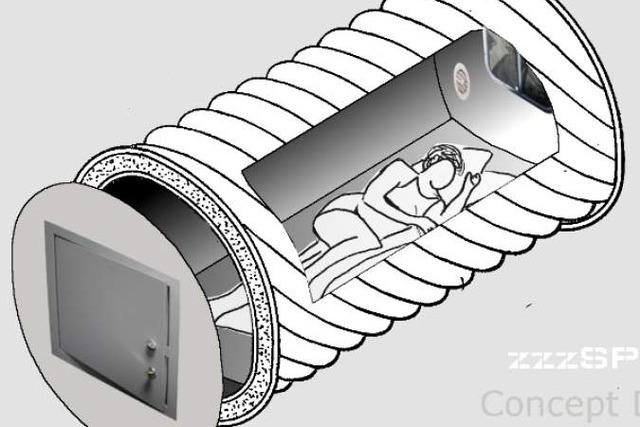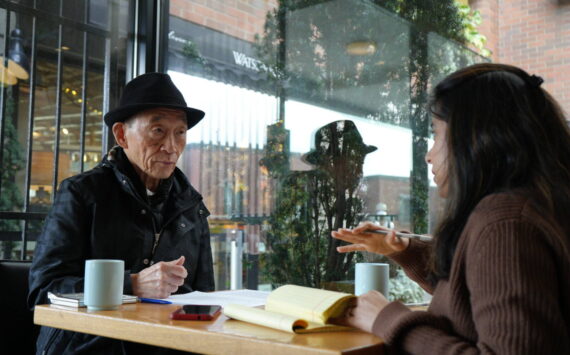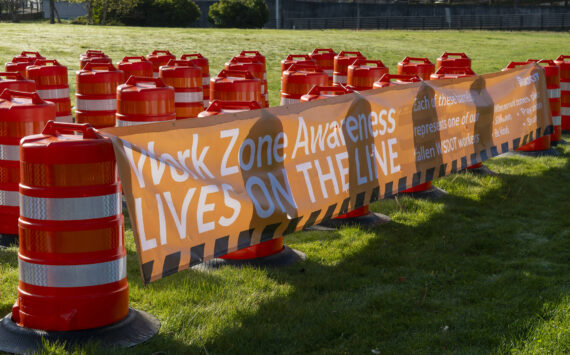Some Seattle innovators want to put homeless people in coffins—but in a good way.
In Japan, they’re called “capsule hotels”: tiny, coffin-shaped tubes that budget travelers can rent for a fraction of the cost of a regular hotel room. Essentially a cot with walls, capsule hotels have been operating in Japan for decades. (Cyberpunk fans might remember that Case rented one in Neuromancer.)
Here in the Emerald City, inventor Mike Momany has prototyped a version he calls a “ZZZSpace.” According to a press release, Momany first thought of the ZZZSpace as a place for him to sleep when he worked late at the MakerSpace, a community industrial workshop in Sodo.
“This project will allow me a comfortable sleep facility when I need to work late,” writes Momany on his GoFundMe.com page, “but in the broader view, Seattle has a huge homeless population problem that they are attempting to solve with tent cities. Tent cities in rainy, wet and cold Seattle are at the most a bad interim solution.”
Momany hopes that his ZZZSpaces might work better. The eight-foot-long tubes look like paper towel rolls inside a human-sized hamster cage. There’s a square door at one end, a window at the other, LED lights along the ceiling, and a cot that can be detached for cleaning. Momany initially planned to externally house the tubes with steel, but then opted for wood to make them easier to make at home. According to its GoFundMe.com page, a ZZZSpace can be 95 percent build with Home Depot materials.
Now, we like coffins as much as the next vampire. But we have to wonder: has Momany misdiagnosed a social problem (where to allow homeless people to exist) as a technical problem (how to keep homeless people warm and dry)? Won’t housed residents’ objections to tent cities apply just as much to tube cities?
Other questions: What’s to stop these tubes from getting trashed by unscrupulous guests? After all, that’s what happened when, during Mayor Greg Nickels’ administration, the city bought and then abandoned five automated toilets, losing millions in the process. And on the flip side: if these tubes are good enough for homeless folks and good enough for Momany himself, should the city start allowing them to be rented commercially?
We’ve got a call out to Momany, and will update this post when we learn more.
UPDATE: Momany called us back. Here’s what he had to say to our questions.
Won’t neighbors object to ZZZSpaces in the same way that they object to having tent cities located nearby?
Momany thinks the ZZZSpace might encounter less neighborhood opposition because it’s mobile and stackable. “I think neighbors could be more conducive to [having ZZZSpace shelters located nearby] if they knew it had a limited time on it. So these could be easily moved to another space.” ZZZSpaces can also be packed into a smaller land area, he says, because they can be stacked on top of one another. “Let’s say somebody wanted to make a more permanent location. These could be stacked and turned into kind of a hotel in…a pretty inexpensive warehouse space,” he says.
Won’t these ZZZSpaces just get trashed?
Momany imagines the ZZZSpaces being managed by churches and other homeless shelter providers. “I don’t believe that they need to just be put out in the open in the wild,” he says. “I don’t really want to get into the management of them…but basically they could be bought by churches and used in their parking lots.” Furthermore, he says, the ZZZSpace is designed to be difficult to damage and easy to clean. “There are no accessible screws or anything some crazy guy” could mess with on the inside, he says. “The beds couldn’t be removed, except by a maintenance person…And it’s designed to be pressure washed. It has a drain on it…It’ll drain to the outside.
“I envision it as being a nighttime deal,” says Momany. “In by ten and out by seven. Like a shelter, but cleaner.”
If ZZZSpaces are so great, should non-homeless renters be allowed to rent them?
“I don’t see why not,” says Momany. “You’re talking about an overnight sleep space. Because you don’t have other facilities—kitchen, bathroom—you’re really not going to get anybody who wants to stay longer than overnight…I think you could rent these in Seattle for $20 a night, easily. They’re going to be extremely comfortable inside.”
How much will a ZZZSpace cost to produce?
About $1,500, says Momany. He hopes to hold workshops where people can learn how to build their own.
What’s the timeline for producing your first ZZZSpace?
That depends on when he gets another thousand bucks in donations needed to complete the prototype, Momany says. Then he’ll take it out for some customer feedback, he says. “The first thing I’m going to do when I get this one built is take it out to some homeless people around here…and just show it to them, you know? ‘What do you think?’”








